The Emigrant's Lost Son; or, Life Alone in the Forest Read online
Produced by Al Haines
[Frontispiece: Frank Osborne's alarm on discovering a bow and quiversuspended in the forest]
Title page]
THE
EMIGRANT'S LOST SON:
OR,
LIFE ALONE IN THE FOREST.
EDITED BY
GEORGE HENRY WALL.
_NEW EDITION._
_Illustrated by Corbould_
LONDON:
ROUTLEDGE, WARNE, AND ROUTLEDGE,
FARRINGDON STREET.
NEW YORK: 56, WALKER STREET.
1860.
[_The Author of this Work reserves to himself the right ofTranslating._]
LONDON;
SAVILL AND EDWARDS, PRINTERS, CHANDOS STREET,
COVENT GARDEN.
CONTENTS.
INTRODUCTION BY THE EDITOR
CHAPTER I.
CAUSE OF LEAVING ENGLAND, AND ARRIVAL AT THE FOREST
CHAPTER II.
I AM LOST IN THE FOREST--MY SITUATION AND FEELINGS DESCRIBED
CHAPTER III.
I BUILD MYSELF A HUT--THE SCENERY THROUGHOUT A DAY IN THE FORESTDESCRIBED
CHAPTER IV.
AN ADVENTURE WITH A BEAR--AN EXTRAORDINARY ECHO--I AM ATTACKED WITH AFEVER, AND SUBSEQUENTLY DRIVEN FROM MY HUT
CHAPTER V.
I WITNESS A GRAND CONVULSION OF NATURE, IN WHICH I HAVE A WONDERFULESCAPE--AM RESCUED IN THE LAST EXTREMITY, AND ADMITTED INTO A TRIBE OFINDIANS
CHAPTER VI.
FURTHER ACCOUNT OF THE INDIANS--I ARRIVE AT MY FATHER'S FARM
INTRODUCTION BY THE EDITOR
That no person in this state of existence may be tempted to assert hisown independence, the affairs of life are so ordered that much of thehappiness enjoyed by mankind depends upon their communion with eachother. Human affections, if they were permitted to act freely, as theyspontaneously arise in the breast of mankind, are designed to bind allthe human race in one bond of brotherhood.
Our own parents and near relatives first call these affections intoactive exercise. Their care and attention to our welfare, the interestthey take in preserving us in a state of safety and health, and inteaching us also the duties we owe both to our Creator andfellow-creatures, tend to give the first impetus to the germs of ouraffections; and it is by the exercise of these very affections that wederive a continual source of happiness, which becomes hereafter thechief means by which the refinement of the senses may be effected.Thus it is, that when death, or other causes, deprive us of ourimmediate parental guidance, the affections as naturally seek for newobjects, on which to exert their influence, as the operations of anyother well recognised principles proceed in the works of nature.
The author and hero of the following narrative, was called upon toexperience the sudden deprivation of not only his parents, but of allhis dearest friends; and that at an age when the heart first expands tothe relations of our existence, and is most sensitive to the emotionsof grief; when, unexpectedly and unprepared, it is cut off from allsympathy or communication with human kind. At the age of thirteen hewas lost in an almost boundless Guiana forest, where he remained forseveral years, dependent solely upon his own resources, mental andphysical--that is, on the one hand, to bear the mind up against theshock it received in being thrown suddenly into solitude; and, on theother, to provide for his daily wants. That man never was intended tolive in what is denominated "a state of nature," is manifest by hislong infancy and the tardy development of his mental powers. No animalis so long after its birth before it can support the body on its legsas man; in none is the period of complete adult stature so longprotracted. When born into the world he is entirely defenceless, hisgreat distinctions from other animals are reason and speech: these,however, are germs which are not developed of themselves, but arebrought to maturity by extraneous assistance, cultivation, andeducation; hence we must infer that man was intended for social union,and that his imaginary state of nature, which some writers have spokenof, never has existed.
Man, however, in his nature, is limited in no respect; being fitted forevery kind of life, every climate, and every variety of food. TheDeity has given him the whole earth for his abode, and the producethereof for his nourishment. With the advantages, however, of an earlymoral and religious education, together with an excellent constitution,our juvenile exile from man was enabled, under the direction of awatchful Providence, to preserve his life, protect his mind againstdespondency, and procure a subsistence in the midst of dangers.
The difficulties he encountered, the manner in which he overcame them,and the scenes which were brought under his view in the extended fieldof observation into which he was thrown, it is the object of thefollowing narrative to lay before the reader. To those whose knowledgeextends not beyond the world of man to the boundless fields of nature,it may appear that such a life must have been one of monotonouslistlessness, from which few materials could be gathered to impartknowledge or interest to the general reader.
Our hero, however, found employment for the mind in every moment of hiswaking hours, and was furnished with objects for study in the forest,that might engage the longest period of life allotted to man tocatalogue or enumerate.
Happily for the exile, his mind was formed to seek for knowledge in theonly sources open to man for the full development of the intellectualpowers; namely, observation and reflection.
Denied the aid of books, in the far woods that "steeped in theirmoonbeams lie," he called upon his Maker, and the echo of the floor ofthe forest recognised his presence. Acquiring confidence from thisassurance, and relying on Providence for protection, he converted thescenes around him into a school of study, and realized in the woods alife of activity instead of one of solitude. He soon discovered, whenleft to draw deductions from his own experience in the scenes ofNature, that there is nothing but what is beautiful, nothing unworthyof admiration. "The disregard," he says, "which by many is paid to herproductions, reflects no honour on those who evince it, and littlecredit on a system of education that does not at once lead its pupilsto the grand fountain of all knowledge. While the majority," he adds,"of my youthful contemporaries were engaged in committing to memory avocabulary of words, I was busily engaged in studying the thingsthemselves." While others were spending their time in acquiring aknowledge of the customs and forms of artificial society, our exile hadthe great book of nature widely spread open before him, Throughout thatperiod of life which is usually devoted, by the majority ofindividuals, to study the purposes of social life, he was conversingonly with the trees; or with the birds, and insects, and other tribes,of the animal kingdom, all the works of God, and to which hisattachment was ardent and sincere. Now that he is again in the societyof his fellow-men, the recollections of his sylvan probation are asvividly depicted on his mind as at the moment when he first receivedthe impressions. Trees which supplied him with food, or shelter fromthe heat of the sun or the rains of the climate, are still dear to hisrecollection, and he often reverts to them with feelings of gratitudeand respect, from which he would not, if he could, estrange theaffections of his heart.
There is no music so sweet to his ear as the breezes that animated thelofty cloud-aspiring monarchs of the forest, with which he claims apeculiar acquaintance, or the murmuring of the brook, where he was wontto slake his thirst; no concert to his sense of sound so grateful asthe wild notes of the birds that chanted, morning and evening, theirMaker's praise, as he offered up his own prayers of gratitude for theprolongation of his existence, or the hummings of the myriads ofinsects, that every hour, in his woodland rovings, arrested hisattention.
It was while listening to thes
e voices of the Creator that his heartwas first touched with feelings of admiration and wonder at themultifarious and exquisitely organized beings that everywhere, whetherin tranquil meditation or in active search of his food, met his sight.He saw nature everywhere teeming with life, and proclaiming in languageintelligible to every one the presence of an All-directing Power. Itwas in the forest, too, in the midst of the wonders of the creation,that the lost youth first aspired to lift up his thoughts to heaven,and mentally exclaim--"These are thy works, oh God!" It was also inthe lonely wilderness he first cherished the hope, in the language ofthe Indian, that the Great Spirit had provided for him a higher stateof happiness; and then it was he offered up a prayer, that this hopemight, in his Maker's own time, be realized. It was also in thewilderness, communing with his own thoughts, that he first received anassurance that he possessed a soul to be saved, and became imbued witha firm conviction that the wise Creator, in his infinite beneficence,designed the happiness of his creatures, and that nothing can deprivethe human race of his blessings but a connexion with sin.
With an undivided mind, intent only on examining and admiring the worksof creation, the youth, in his lonely wayfaring, everywhere found thepresence of his Maker. At the earliest moment of incipient vegetation,he was busy watching the indications of bursting nature preparing tore-robe the trees; and in a prospective vista he beheld the joyousmovements of the various tribes of birds and insects providing for thewants of themselves and their progeny. Not less busily was his mindengaged when these labours actually commenced, in noting theconstruction of their habitations, and in admiring the wonderfulingenuity each displayed in providing for its own peculiar wants andsafety.
Thus engaged in almost continual observation, he was enabled to tracethe manner in which numbers of the feathered and insect tribes workedout the purposes of their existence. As the multifarious branches ofthe trees of the forest expanded themselves into fulness of leaf, hesaw nations after nations of living things on the move to claim hisattention, all pouring forth to seize on their share of the abundanceof nature. As each revolving season hastened the decay of or impartednew vigour to the monarchs of the forest, the exile from man had anopportunity, abstracted as he was from the busy affairs of human life,to distinguish the various characteristics of the tribes of insectsthat took possession of the trees, differing from those which,apparently innoxiously, fed on their fulness of vegetable youthfulness,and the insects that came to prey only on the trunk or branches ofthose that age or disease had brought to decay. He saw the leaves ofthe forest come into life, witnessed their gradual expansion intoverdant beauty; he was there, likewise, at their decline andfall--recurring symbols of the succession of the races of mankind,--andwhen, the biting north winds denuded of their leaves many of thesemighty monarchs of the forest, he collected them to form his woodlandbed. No season passed without adding to his store of information inreference to the works of nature, which knowledge, as we have alreadysaid, it is the design of this work to impart to others. It is thenatural history of the forest, or so much of it as has been seen by oneindividual during a period of six years' sojourn in its solitude.
From what has been stated, the reader will not expect to find anyclassified arrangement of subjects in this work; things are spoken ofas they were seen, either in the stillness of the shade at one time, orin the raging of the storm at another. Forest trees, in general, aredescribed; those which may afford food to man are more frequentlymentioned. Of quadrupeds, birds of the air, and insects, those thatmost excited his attention are more especially noticed. Those whoseferocity or whose shyness rendered it hazardous or difficult toapproach them, are less spoken of. The details of the author'shistory, in reference to his probation in the wilds of nature, he hasendeavoured to relate in a most familiar manner, and in the simplestlanguage; and when describing scenes and events, faithfully to impartthe impressions made on his own mind as they occurred.
Reasoning from the convictions arising from his experience,--that is,the effects wrought upon his own mind--he thinks that the study ofnatural objects, used as a means for the improvement of the religiousand moral character of mankind, has been much overlooked by thephilanthropist, and neglected by those who are sincere in their desireto improve their own species.
When the author was restored to society, nothing more excited hissurprise than the total absence of a system of education which shouldat once direct the mind of youth to the fountain of all knowledge; and,in consequence, to persons he met with who took any lively interest inthe study of natural objects, he remarked, "Your system of educationappears more designed to exercise the mere verbal memory, than toexcite observation or reflection;" adding, "that an acquaintance withthe works of the Deity, as they are seen remote from the haunts of men,not only expands and elevates the thought, but spiritualises the soul."The contemplation of nature's works, while it subdues the pride of man,harmonizes the feelings of social life, and in a peculiar mannerprepares the mind for the reception of revealed truths. It is onlynecessary to add that, the education of the "Emigrant's Son,"previously to his exclusion from the world of man, had not in any waybeen of a peculiarly religious tendency; nor had he evinced anypredilection for discussing religious topics. Yet, when he was broughtto contemplate the works of the Deity on an extended scale, heeverywhere found the indications of the presence of a superior andall-wise Creator in those scenes. It is therefore natural that heshould feel a desire that others should seek and find Him at the samepure fountain of knowledge. "The voice of my beloved; behold he comethleaping upon the mountains, skipping upon the hills." (Solomon, ii. 9.)
True it is, that the student who once enters the portals of naturalhistory, seldom thinks of returning. Strolling from object to object,his appetite is never satiated. St. Pierre aptly remarked, that"nature invites to the cultivation of herself." Should the perusal ofthe following page direct the mind of the youthful reader to the studyof nature, the object of publishing this narrative will have beenattained.
G. H. W.
HARRINGTON COTTAGE, BROMPTON
THE EMIGRANT'S LOST SON.

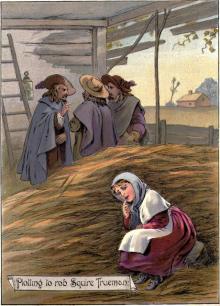 Goody Two-Shoes
Goody Two-Shoes The Pearl Box
The Pearl Box And when you gone...
And when you gone... Stranger At The Other Corner
Stranger At The Other Corner My Young Days
My Young Days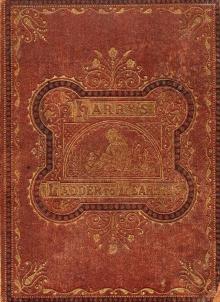 Harry's Ladder to Learning
Harry's Ladder to Learning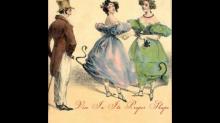 Vice in its Proper Shape
Vice in its Proper Shape_preview.jpg) Promise (the curse)
Promise (the curse) The First Sexton Blake
The First Sexton Blake Golden Moments
Golden Moments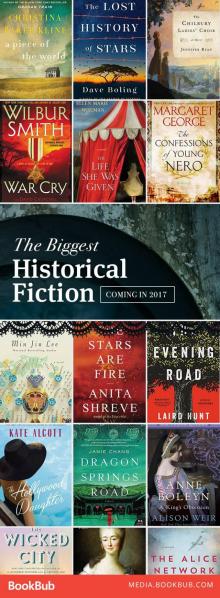 Hildebrand; or, The Days of Queen Elizabeth, An Historic Romance, Vol. 2 of 3
Hildebrand; or, The Days of Queen Elizabeth, An Historic Romance, Vol. 2 of 3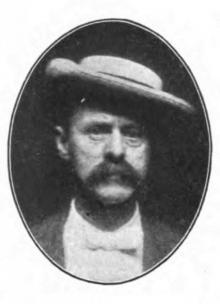 The Ice Queen
The Ice Queen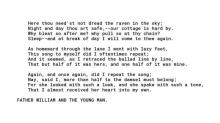 Phebe, the Blackberry Girl
Phebe, the Blackberry Girl Stoned Immaculate
Stoned Immaculate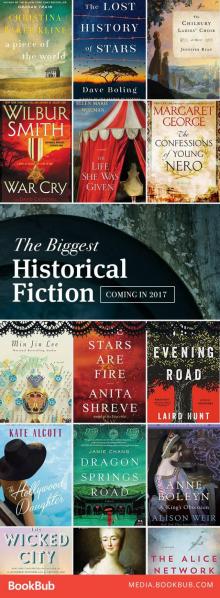 Hildebrand; or, The Days of Queen Elizabeth, An Historic Romance, Vol. 3 of 3
Hildebrand; or, The Days of Queen Elizabeth, An Historic Romance, Vol. 3 of 3 The Wonder of War on Land
The Wonder of War on Land Breaking Bailey
Breaking Bailey The Little Girl Who Was Taught by Experience
The Little Girl Who Was Taught by Experience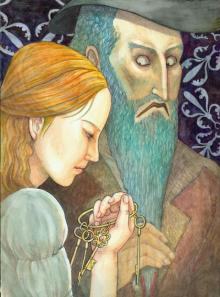 The Popular Story of Blue Beard
The Popular Story of Blue Beard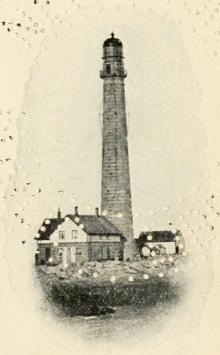 The Life Savers: A story of the United States life-saving service
The Life Savers: A story of the United States life-saving service Eunuchs and Nymphomaniacs
Eunuchs and Nymphomaniacs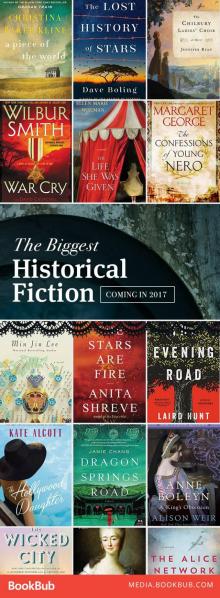 Hildebrand; or, The Days of Queen Elizabeth, An Historic Romance, Vol. 1 of 3
Hildebrand; or, The Days of Queen Elizabeth, An Historic Romance, Vol. 1 of 3 Kitty's Picnic, and Other Stories
Kitty's Picnic, and Other Stories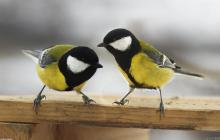 Two Yellow-Birds
Two Yellow-Birds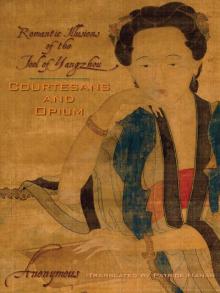 Courtesans and Opium
Courtesans and Opium The Emigrant's Lost Son; or, Life Alone in the Forest
The Emigrant's Lost Son; or, Life Alone in the Forest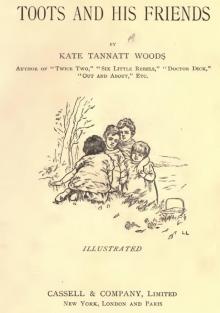 Toots and His Friends
Toots and His Friends Fast Nine; or, A Challenge from Fairfield
Fast Nine; or, A Challenge from Fairfield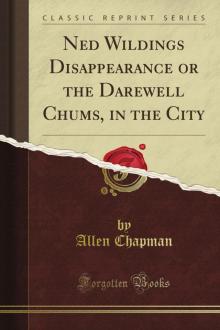 Ned Wilding's Disappearance; or, The Darewell Chums in the City
Ned Wilding's Disappearance; or, The Darewell Chums in the City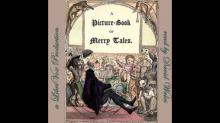 A Picture-book of Merry Tales
A Picture-book of Merry Tales The Trail of The Badger: A Story of the Colorado Border Thirty Years Ago
The Trail of The Badger: A Story of the Colorado Border Thirty Years Ago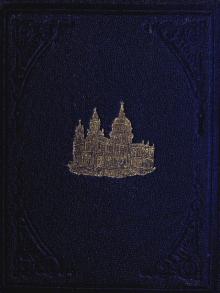 Peter Parley's Visit to London, During the Coronation of Queen Victoria
Peter Parley's Visit to London, During the Coronation of Queen Victoria The Rainbow, After the Thunder-Storm
The Rainbow, After the Thunder-Storm Arthur Hamilton, and His Dog
Arthur Hamilton, and His Dog The Story of the White-Rock Cove
The Story of the White-Rock Cove Grushenka. Three Times a Woman
Grushenka. Three Times a Woman Adventures of a Squirrel, Supposed to be Related by Himself
Adventures of a Squirrel, Supposed to be Related by Himself Falling in Love...Again
Falling in Love...Again The Colossal Camera Calamity
The Colossal Camera Calamity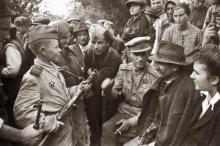 Child of the Regiment
Child of the Regiment Elimination Night
Elimination Night The Kingfisher Secret
The Kingfisher Secret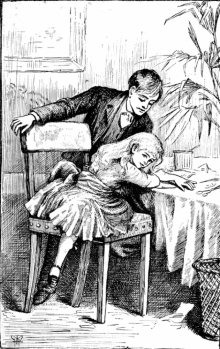 Left to Ourselves; or, John Headley's Promise.
Left to Ourselves; or, John Headley's Promise. The Island of Gold: A Sailor's Yarn
The Island of Gold: A Sailor's Yarn Adventures of Bobby Orde
Adventures of Bobby Orde Twain, Mark: Selected Obituaries
Twain, Mark: Selected Obituaries When Love Goes Bad
When Love Goes Bad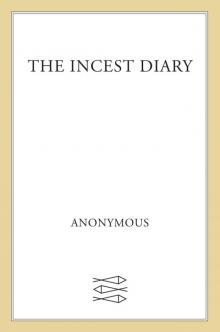 The Incest Diary
The Incest Diary Calling Maggie May
Calling Maggie May The Infidelity Diaries
The Infidelity Diaries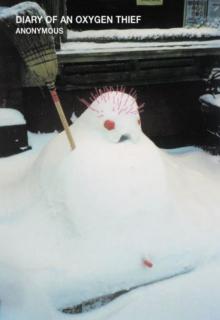 Diary of an Oxygen Thief (The Oxygen Thief Diaries)
Diary of an Oxygen Thief (The Oxygen Thief Diaries) ARABELLA
ARABELLA The Eye of the Moon
The Eye of the Moon Dara
Dara THE ALTAR OF VENUS: The Making of a Victorian Rake
THE ALTAR OF VENUS: The Making of a Victorian Rake The Book of Death
The Book of Death The Book of David
The Book of David The Devil's Graveyard
The Devil's Graveyard The Book With No Name
The Book With No Name I Am A Lesbian
I Am A Lesbian Njal's Saga
Njal's Saga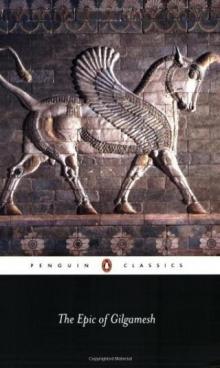 The Epic of Gilgamesh
The Epic of Gilgamesh Darling
Darling Tal, a conversation with an alien
Tal, a conversation with an alien Go Ask Alice
Go Ask Alice Aphrodizzia
Aphrodizzia The Campus Trilogy
The Campus Trilogy Augustus and Lady Maude
Augustus and Lady Maude Lucy in the Sky
Lucy in the Sky Sight Unseen
Sight Unseen Pleasures and Follies
Pleasures and Follies The Red Mohawk
The Red Mohawk A Fucked Up Life in Books
A Fucked Up Life in Books Chameleon On a Kaleidoscope (The Oxygen Thief Diaries)
Chameleon On a Kaleidoscope (The Oxygen Thief Diaries) Astrid Cane
Astrid Cane BEATRICE
BEATRICE The Song of the Cid
The Song of the Cid